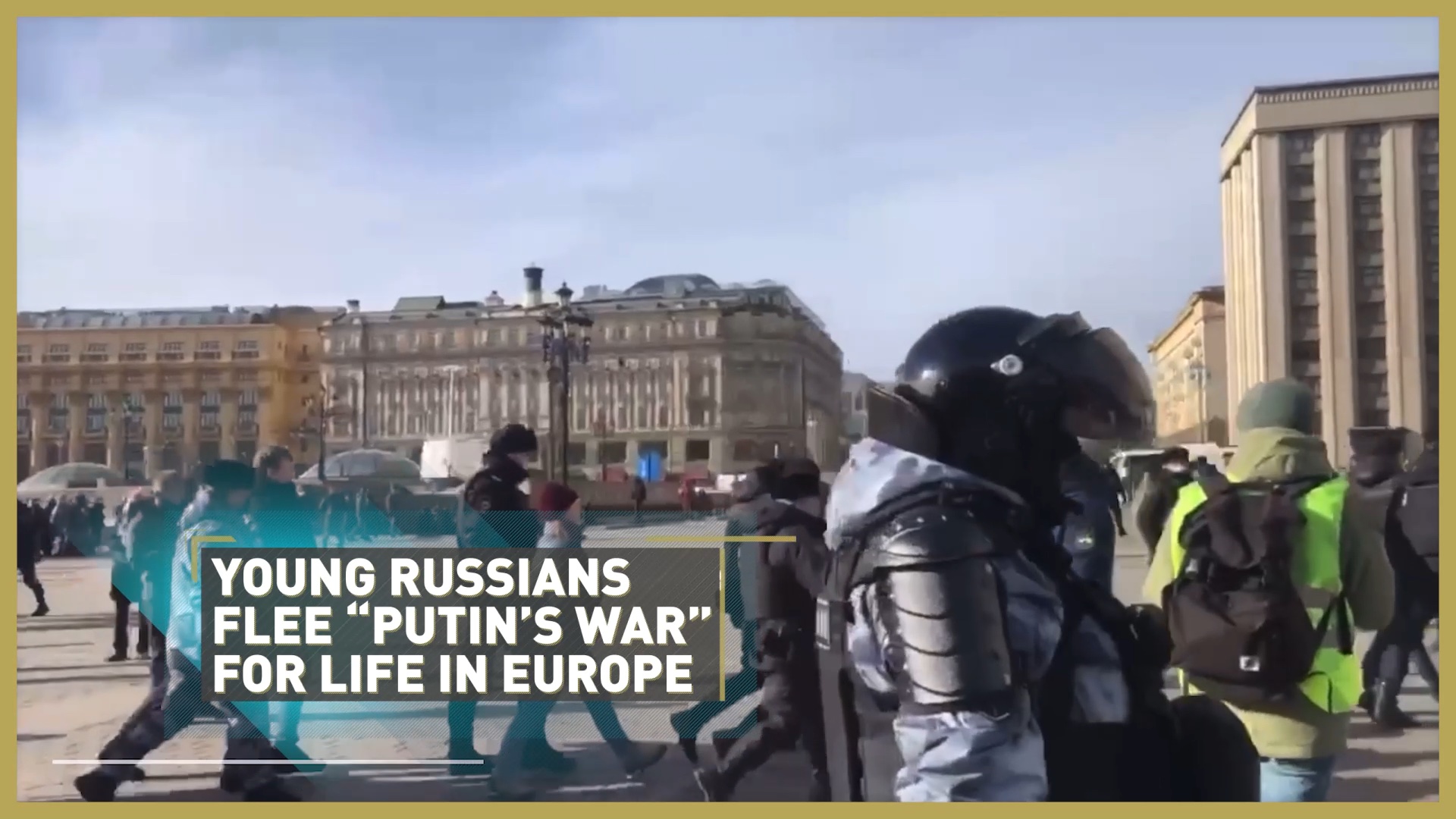03:40

The ongoing conflict in Ukraine has caused a generation of Russians to flee their mother country for a new life abroad. Many, opposed to the rule of President Vladimir Putin, are heading to cities like Istanbul, Helsinki, Yerevan and Tbilisi.
CGTN has spoken to one young Russian who packed up and left within hours of Russia's military actions beginning on February 24.
Grigory Sverdlin, 43, is the director of Nochlezhka, a charity for the homeless in St Petersburg. He has been publicly protesting against Russia's involvement in Ukraine since the annexation of Crimea in 2014. Posting pictures of himself on social media, he gained a following of like-minded young Russians.
READ MORE
Floating train tipped for speed record
Telling China's story: Michael Wood
Sweden and Finland look towards NATO
"I was standing alone with an anti war sign on Nevsky Prospect in St Petersburg. I felt that I was supported. Many people showed me the big thumb, and wanted to have a selfie taken with me," he tells CGTN.
However, he says the atmosphere changed almost overnight when the attack on Ukraine started on February 24, with a new crackdown on dissent.
"I understood it was a matter of days and maybe hours before the police would take me because it's illegal now [to protest] in Russia… you can be put in jail for 15 years," he explains.
Road trip
Fearful that his activities may have consequences for family and friends, Sverdlin packed up his car. With 3,000 euros (around $3,250) in his pocket he drove to Estonia, beginning an epic six-week road trip around Europe in search of a new home.
He describes his 6,000 kilometer journey through the Baltics and central and eastern Europe as "therapeutic". He's not alone.
While no official figures exist, it is claimed that hundreds of thousands of mostly young Russians have fled the country since the start of the offensive in Ukraine. Many are settling in centers with large existing Russian communities that offer a relatively low cost of living, and visa free access for Russian citizens.

A train arrives at from the Russian city of Saint Petersburg at the central railway station in Helsinki, Finland. Many Russians are leaving their home country. /Essi Lehto/Reuters
A train arrives at from the Russian city of Saint Petersburg at the central railway station in Helsinki, Finland. Many Russians are leaving their home country. /Essi Lehto/Reuters
One such place is Istanbul. Despite the EU closing its airspace to Russia, Turkey has kept routes open on the state-backed carrier Turkish Airlines. An estimated 14,000 Russians arrived in Istanbul within the first three weeks of the conflict and the number has continued to rise.
In neighboring Armenia, the government claims around 6,000 Russians and Ukrainians are arriving daily, with most settling in the capital Yerevan. Similarly in Georgia, lawmakers claim 20,000 Russians arrived in the first few days of the conflict.
The sudden influx is causing alarm, with some opposition groups calling for a review of Georgia's visa arrangements with Moscow.
Boost not burden
After a short stay in Istanbul, Sverdlin has joined relatives in Georgia's capital Tbilisi. He hopes the new incomers will eventually adapt and prove to be a boost rather than a burden.
"They are good educated people," he says. "Some of them will start new businesses and they will hire local people in half a year, I'm pretty sure."
Putin has called Russians who have left the country "traitors to the nation". The new diaspora communities face obstacles. Russian credit cards are blocked worldwide and transferring large sums of cash abroad is banned.
On a local level, there are reports of Russians being refused service in shops and restaurants and being turned away by landlords.
Sverdlin admits "it is hard being a Russian abroad right now," but says for those like himself, it has become impossible to stay in Russia after the attack on Ukraine.
"We feel it's the saddest and blackest page of Russian history, and that this shock will unite Russian people after Putin's time", he says. "[For] the rest of our lives we will feel sorry for what was going on using our names, though many of us never supported Putin."

